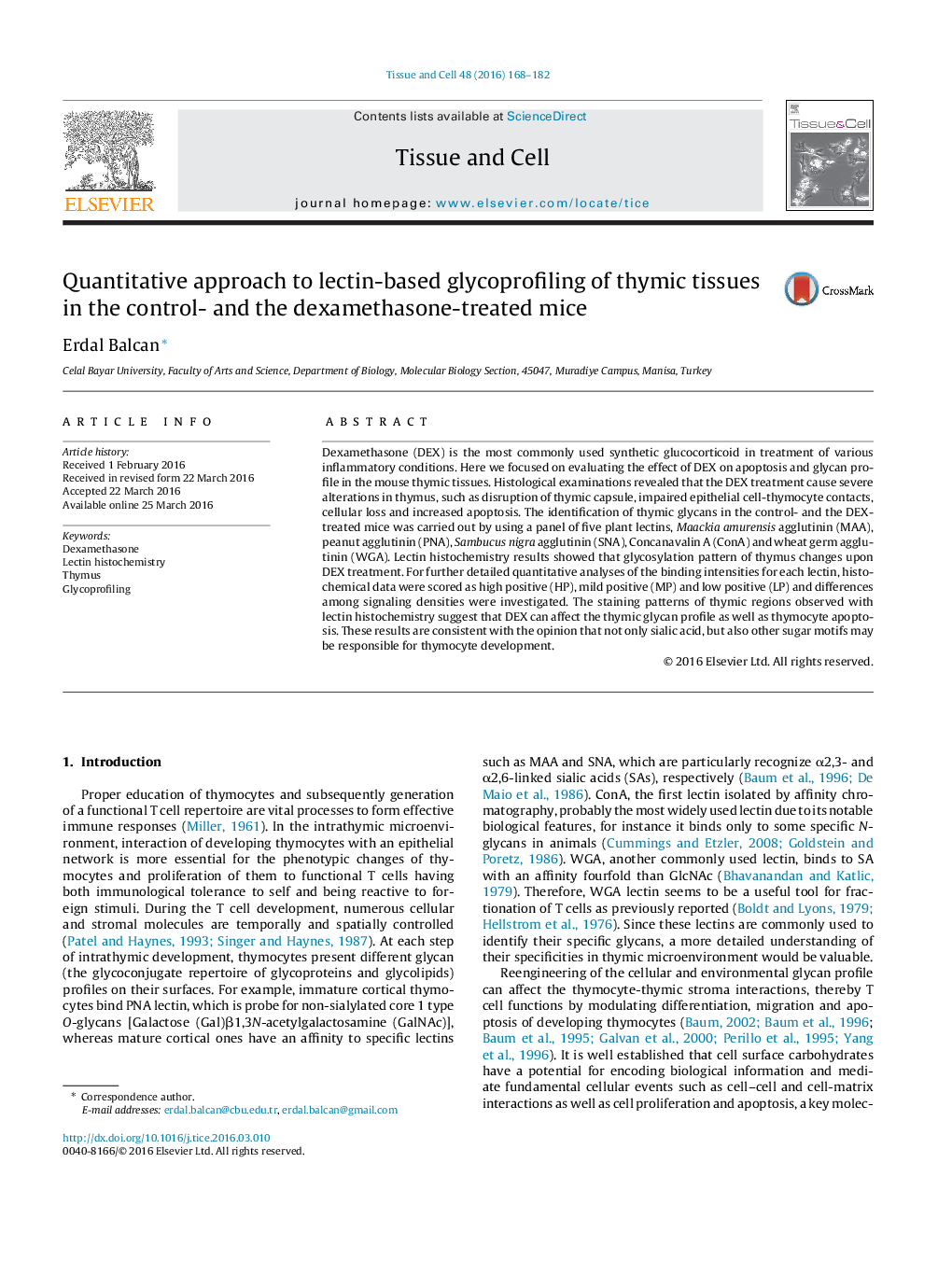| Article ID | Journal | Published Year | Pages | File Type |
|---|---|---|---|---|
| 2203501 | Tissue and Cell | 2016 | 15 Pages |
•The effect of dexamethasone on thymic glycans was quantitatively evaluated.•The glycoprofile of thymus changed upon the 24 h dexamethasone administration.•Dexamethasone can affect the fate of thymocytes by modulating glycosylation pathways.
Dexamethasone (DEX) is the most commonly used synthetic glucocorticoid in treatment of various inflammatory conditions. Here we focused on evaluating the effect of DEX on apoptosis and glycan profile in the mouse thymic tissues. Histological examinations revealed that the DEX treatment cause severe alterations in thymus, such as disruption of thymic capsule, impaired epithelial cell-thymocyte contacts, cellular loss and increased apoptosis. The identification of thymic glycans in the control- and the DEX-treated mice was carried out by using a panel of five plant lectins, Maackia amurensis agglutinin (MAA), peanut agglutinin (PNA), Sambucus nigra agglutinin (SNA), Concanavalin A (ConA) and wheat germ agglutinin (WGA). Lectin histochemistry results showed that glycosylation pattern of thymus changes upon DEX treatment. For further detailed quantitative analyses of the binding intensities for each lectin, histochemical data were scored as high positive (HP), mild positive (MP) and low positive (LP) and differences among signaling densities were investigated. The staining patterns of thymic regions observed with lectin histochemistry suggest that DEX can affect the thymic glycan profile as well as thymocyte apoptosis. These results are consistent with the opinion that not only sialic acid, but also other sugar motifs may be responsible for thymocyte development.
Graphical abstractFigure optionsDownload full-size imageDownload high-quality image (211 K)Download as PowerPoint slide
